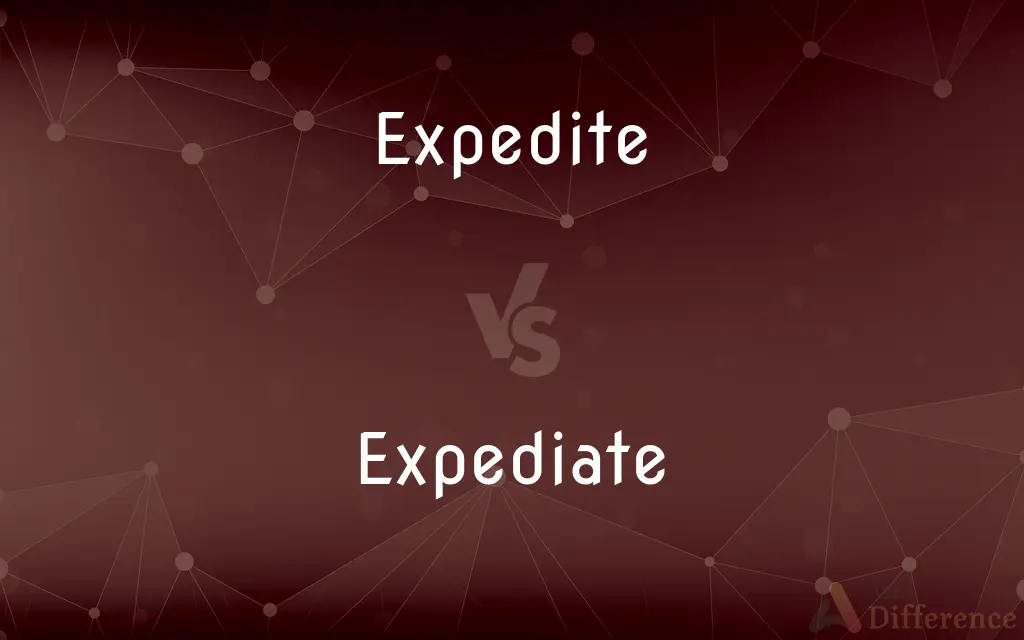Expedite vs. Expediate — What's the Difference?
By Tayyaba Rehman — Updated on August 19, 2023

Difference Between Expedite and Expediate
Table of Contents
ADVERTISEMENT
Which is correct: Expedite or Expediate
How to spell Expedite?

Expedite
Correct Spelling

Expediate
Incorrect Spelling
Compare with Definitions
Expedite
Expeditious; quick; prompt.
Expedite
Make (an action or process) happen sooner or be accomplished more quickly
He promised to expedite economic reforms
Expedite
To perform (a task) fast and efficiently.
Expedite
To despatch; to send forth; to issue officially.
Such charters be expedited of course.
Expedite
To speed up the progress of or execute quickly
Expedite the review of a legal case.
Expedite a loan application.
ADVERTISEMENT
Expedite
(transitive) To accelerate the progress of.
He expedited the search by alphabetizing the papers.
Expedite
To perform the duties of an expediter.
Expedite
Free of impediment; unimpeded.
Expedite
Speed up the progress of; facilitate;
This should expedite the process
Expedite
Process fast and efficiently;
I will try to expedite the matter
Expedite
Free of impediment; unimpeded.
To make the way plain and expedite.
Expedite
Expeditious; quick; speedily; prompt.
Nimble and expedite . . . in its operation.
Speech is a very short and expedite way of conveying their thoughts.
Expedite
To relieve of impediments; to facilitate; to accelerate the process or progress of; to hasten; to quicken; as, to expedite the growth of plants.
To expedite your glorious march.
Share Your Discovery

Previous Comparison
Wildness vs. Wilderness
Next Comparison
Syllabi vs. SyllabusAuthor Spotlight
Written by
Tayyaba RehmanTayyaba Rehman is a distinguished writer, currently serving as a primary contributor to askdifference.com. As a researcher in semantics and etymology, Tayyaba's passion for the complexity of languages and their distinctions has found a perfect home on the platform. Tayyaba delves into the intricacies of language, distinguishing between commonly confused words and phrases, thereby providing clarity for readers worldwide.
















































